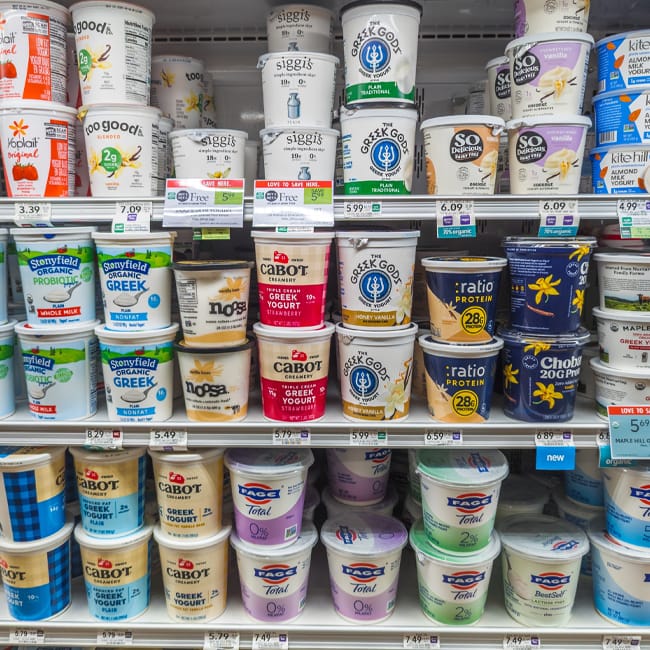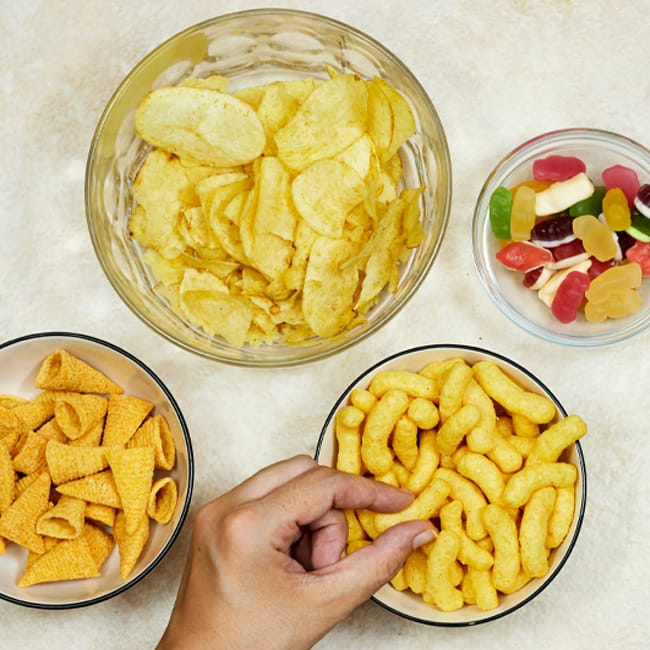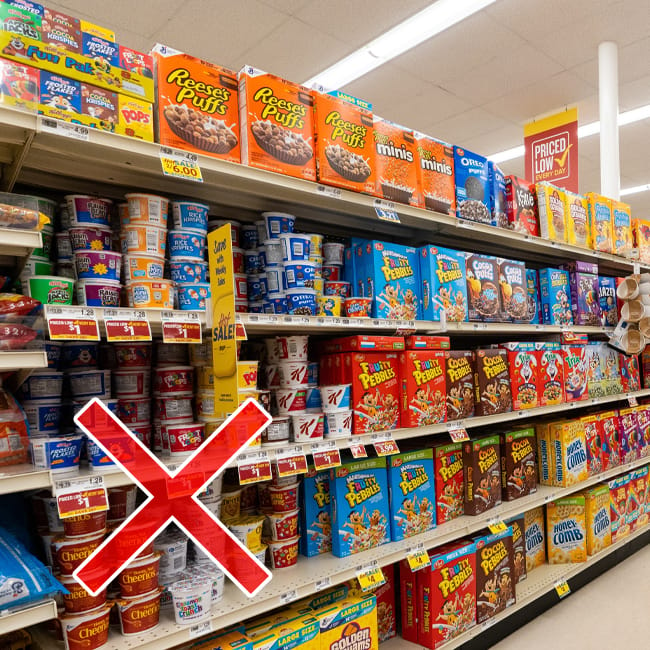There are an innumerable amount of fads within diet culture that promise to secure easy weight loss and claim to allow you to achieve the body of your dreams with little to no effort. Meal replacement bars are one such food item which appears to offer ample protein and carbs to fuel your day without having to cook a meal, easily saving you calories to reach the deficit needed for weight loss. But if meal replacement bars for weight loss seem too good to be true, that may just be because they are. We spoke with registered dietitian Trista Best to clear up the truth of this dieting hack so you’re not surprised by the effects that can come from leaning too heavily on them.


They’re Highly Processed
Although meal replacement bars can function as a quick and effective snack when you’re in a time crunch and need a boost of nutrients, if you’re relying on these bars to fuel your entire day you’re actually loading your body with processed ingredients that can stall weight loss and even cause weight gain over time if consumed in excess. “The problem arises when we rely on meal replacement bars as a regular part of our diet,” explains Best. “Meal replacement bars are a food product, meaning they are highly processed and are often lacking in certain nutrients or contain more calories, fat, and sugar than necessary.”
Artificial sugar is one of the leading causes of weight gain, and to fill these bars with adequate flavor they’re often loaded with such ingredients. Not only this, but while they can be a good source of protein, meal replacement bars generally don’t provide as well rounded of a source of nutrients as whole, natural foods. “When we rely on these bars as opposed to actual food, we are increasing the risk of missing some essential nutrients that a well balanced meal would provide,” notes Best. “Meal replacement bars are often high in calories but do not keep you as full as a traditional meal because they are smaller in size and quickly processed by the body.”

If you make it a habit of trading full meals for replacement bars, you will likely experience more hunger as these processed foods fail to adequately fill you up, resulting in an increased food intake throughout the day. “You are likely to eat another snack or meal shortly after replacing a meal with a bar and this can quickly add up to over consuming calories,” warns Best. To avoid this mistake, stick to eating these bars only when you’re in a time crunch or in need of a quick boost of energy, as they’re not a sufficient source of calories to truly sustain you throughout the day.
As with every other food, there is a place within your balanced diet for meal replacement bars as a nutrient dense snack. However, if you’re actually using them to replace meals that would otherwise include the vitamins and minerals that can come from veggies and fruit, you may experience a spike in hunger and find that these heavily processed foods are not a long term solution to seeing weight loss results. Eating a balanced diet with a mix of whole grains, protein and healthy fats in combination with daily exercise will provide your body with the best results, and while protein bars can add to this, they should not become a cornerstone of your eating habits.


























